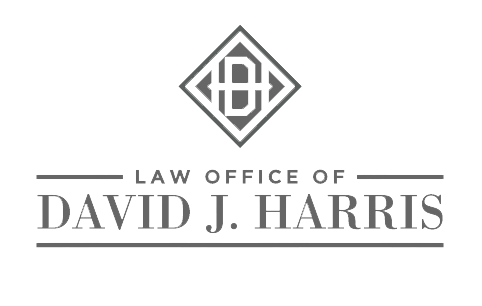How Much Do I Need to Owe to File for Bankruptcy
There is no specific sum that one needs to owe to file for bankruptcy.
Rather, the need for filing will depend on the particular circumstances that a person confronts. For example, a surgeon with $40,000 of credit card debt may not need to file. An elderly person with medical needs, huge monthly utility bills and a particular sensitivity to collection calls having $8,000 of credit card debts may need to file.
Some of the many factors to consider before filing a bankruptcy petition are:
1. Your ability to pay debts as they become due, based on current household income and expenses.
2. Whether the amount that you owe can be paid back within a reasonable period of time without adversely impacting your lifestyle, measured by reasonable and necessary expenses.
3. Whether there is an immediate need for you to stop creditor action, such as collection efforts, levies, garnishments, foreclosures, repossessions or telephone calls.
4. Whether you are particularly sensitive to collection calls.
5. Whether you have a need to cure a particular debt (e.g., a mortgage arrearage) through a court-ordered plan, without a particular concern for discharging debts.
6. Whether you or a household family member has incurred a permanent job loss or decline in income.
7. Whether you or household family member has incurred an illness or a family member upon whom you relied on for support has died.
8. Whether you are engaged in a divorce proceeding.
9. Whether you or household family member has a need to devote funds to a particular debt or debts, such a medical debts, tax debts, child support or student loans.
10. The nature of the your debts (e.g., child support, student loans, taxes, credit cards, mortgage or business debts).
11. Your personal view toward a bankruptcy filing.
If you wish to discuss the content of this post further, please feel free call me at (570) 823-9400 or write to me at dh@lawofficeofdavidharris.com.
Why Is There So Much Paperwork Involved In A Bankruptcy Case
When you file for bankruptcy, you’re going to need to prepare and submit a lot of paperwork. It seems like overkill but, the law requires very detailed financial disclosure.
For example, the law requires that you file a petition to initiate your bankruptcy case, numerous schedules to show what you own, how much debt you have, the type of debt that you have, your monthly income and expenses, and excerpts of your financial history, all to enable the court and your creditors to determine if you qualify for the relief that you seek in your particular bankruptcy case.
A better way to understand this is to first explain the reasons why someone (or some business) might file for bankruptcy.
Some of the most common objectives for filing for bankruptcy are:
(A) to discharge overwhelming unsecured debts;
(B) to cure or bring current a mortgage arrearage to retain a residence or other real estate;
(C) to keep creditors at bay while proposing a personal or business plan of reorganization; or
(D) to pay back all or some part of the debt for which the creditors are seeking collection because of the existence of high income, equity in assets or non-dischargeable debts.
You must thoroughly and accurately fill out and file all the paperwork mentioned above so that the court and creditors can determine:
(A) if you have limited or no equity in assets so that you can discharge unsecured debts without having to pay anything back;
(B) whether you have enough net monthly income to be able to feasibly cure or bring a mortgage arrearage current while maintaining payment of other necessary monthly expenses;
(C) whether you filed the case in good faith to enable creditors to be kept at bay from its collection efforts; and
(D) where you are compelled to pay back something to creditors, how much you need to pay back based on your equity in assets and excess monthly income.
Please feel free call me at (570) 823-9400 at my office in Wilkes-Barre, Pennsylvania or write to me at dh@lawofficeofdavidharris.com, if you would like free information about all that I have discussed.
What Is The Difference Between A Secured Debt And An Unsecured Debt
A debt is an obligation of someone or some company (a debtor) to pay back money to someone else or to some other company (a creditor).
A debt is unsecured if the debtor has not pledged any property or has not given a property interest to the creditor in support of the debt.
If a creditor holding an unsecured claim wants to be paid what is owed by the debtor, the creditor must sue the debtor, obtain a judgment and then execute by levy or seizure on the debtor’s assets.
A debt is secured if: (A) the debtor has pledged property or has given a property interest in support of the debt (a voluntary secured claim); or (B) the debtor has been sued by the creditor and the creditor has obtained a judgment against the debtor and a lien against the debtor’s property in accordance with the law of the state where the debtor’s property is located (an involuntary secured claim).
The creditor holding a secured claim acquires an interest in, or claim to, the assets that the Debtor pledges or gives or upon assets upon which the creditor acquires a lien. Upon the debtor’s default in paying back the debt, a creditor holding a secured claim can: (A) sue the debtor and proceed against all the debtor’s assets upon the debtor’s failure to pay the debt owed; or (B) sue to repossess the property that is pledged or given or that is subjected to the creditor’s lien.
The advantage to the secured creditor is that the secured creditor gets first priority rights to pledged or secured assets over all other creditors’ claims or actions if the secured creditor “secured” his claim before other creditors secured their claims. Priority is based on “first in time, first in right.” In other words, a mortgage recorded on March 1, 2009 will have priority over a mortgage recorded on June 15, 2009 or a judgment lien acquired on June 15, 2009.
In Pennsylvania, a debt becomes secured by real estate by the signing and recording of a mortgage document in the county court where the property is located.
In Pennsylvania, a debt becomes secured by a vehicle by a designation recorded on the vehicle’s title certificate that is then filed with the state.
In Pennsylvania, a debt becomes secured by equipment, machinery or intangible assets (e.g., securities or receivables) by a physical pledge or by the recording of a UCC financing statement with the state.
In Pennsylvania, a judgment obtained by a creditor acts as a lien or charge on any real estate owned by the debtor in the county where the judgment is recorded.
In Pennsylvania, a judgment obtained by a creditor acts as a lien or charge on any tangible and intangible non-real estate property when the judgment is obtained and the county sheriff levies on the property.
Unique to all is an IRS judgment, which acts as a lien or charge on all property of the debtor of every type, now owned or after acquired, without the need for a specific levy. The IRS, however, is subject to the priority rules discussed above.
Please feel free to call me at (570) 823-9400 at my office in Wilkes-Barre, Pennsylvania or write to me at dh@lawofficeofdavidharris.com, if you would like free information about all that I have discussed.
Are Co-Signers Or Guarantors Responsible For A Loan Or Debt If The Primary Borrower Files For Bankruptcy?
Generally, a co-signer or guarantor may be liable for a loan or debt obligation if the primary borrower files for bankruptcy. The same may hold true for an authorized user or co-user of a credit card.
The primary borrower’s bankruptcy filing does not result in a discharge of the debt of the co-signer or guarantor.
There are exceptions, though.
The terms of the documentation signed by the co-signer or guarantor may limit his or her liability. Further, the person’s co-signing or guaranty may have been procured improperly by the creditor under Federal law.
Aside from these issues, an authorized user or co-user of a credit card (with a bankruptcy debtor) may have no liability for the credit card debt if he or she never signed a document that would obligate him or her on debt. This should be examined carefully, as credit card companies frequently cannot prove that the authorized user or co-user ever signed anything.
A debtor’s bankruptcy lawyer should list a co-signer or guarantor as a creditor on the debtor’s bankruptcy schedules so the debt that the debtor owes to the co-signer or guarantor is discharged. This may sound peculiar but, in most states, a co-signer or guarantor has a right of contribution from the primary borrower if the creditors ends up collecting the debt from the co-signer or guarantor. For example, if you and I owe a debt to the ABC bank, the bank can come after either one of us upon a default. If the bank ends up collecting the debt from me, it’s up to me to go after you for contribution. If you end up filing for bankruptcy, you should list me as a creditor to discharge my right of contribution against you.
If you are confronted with this situation, call me now at (570) 823-9400 or write to me at dh@lawofficeofdavidharris.com.
Will A Bankruptcy Filing Eliminate My Tax Debts?
Filing for bankruptcy may be a good way to deal with your tax debts. However, often times it is not. Yet, there may be other options without filing for bankruptcy.
Generally, you can discharge your income tax debts for any year where your tax return for that year was due more than 3 years ago, where the return was actually filed more than 2 years ago, where your tax obligation was assessed more than 240 days ago, and where you did not intentionally fail to file your return or pay your taxes.
The time periods above can sometimes be suspended. For example, if you had an offer in compromise pending with the IRS, the above periods will be met only after you subtract out the time that the offer in compromise was pending, plus 30 days.
Some kinds of taxes are dischargeable in a bankruptcy case and some are not.
For the most part, income taxes are dischargeable, subject to the above rules. By contrast, excise, sales and withholding taxes are not dischargeable.
Bankruptcy is a feasible way to eliminate tax debt. However, when bankruptcy will not work, there are often numerous other ways to deal with your tax debts.
If you are interested is discussing your options, please call me at (570) 823-9400 or write to me at dh@lawofficeofdavidharris.com.
How To Determine If I Should File For Bankruptcy
If you are considering filing for bankruptcy but are unsure whether you should do so, you should consider the following.
First, you should meet with an experienced bankruptcy lawyer who will determine your objectives and evaluate whether there are alternatives to filing bankruptcy and, if bankruptcy is the best option, how to go about doing so.
A skilled bankruptcy lawyer will have a proven track record of negotiating mortgage, student loan, and tax obligations and a proven track record of litigating challenges against mortgage companies, student loan agencies and federal, state and local tax agencies.
If a bankruptcy filing is necessary, the skilled bankruptcy lawyer will explain the bankruptcy process to you in an understandable manner and will assist you in preparing a bankruptcy petition, numerous schedules that list all your assets, debts, monthly income and expenses, and a statement of your financial history. The petition, schedules and statement will be filed with the bankruptcy court and will allow the court, a trustee, and your creditors to determine if you qualify for rights that you seek.
To locate a skilled bankruptcy lawyer, you should conduct research by Internet and make inquires of lawyers that you know who may not practice in the bankruptcy arena. You should focus your search for bankruptcy lawyers in the geographic area where you reside.
You should also investigate the lawyer’s credentials, including the number of years he or she has been in practice and whether he or she has significant trial experience, as a lawyer’s experience level will will often impact the extent of the benefits that you will get by filing for bankruptcy.
Specifically, you should investigate non-biased peer and client reviews of the lawyer on Internet sites such as Avvo.com or Martindale Hubbell.
Once you have located an experienced bankruptcy lawyer in your geographic area, you should meet with the lawyer to determine that you are comfortable with him or her. Most lawyers will not charge for the initial consultation.
You should not use the services of an attorney who will not meet with you face-to-face or who has limited experience exploring and pursuing non-bankruptcy alternatives or who has limited trial experience.
I have engaged in practice for over 35 years and have extensive experience in negotiating non-bankruptcy and bankruptcy solutions. I also have extensive trial experience, as shown by my reported cases. While I practice throughout Pennsylvania, my home base is in Northeastern Pennsylvania, including Luzerne, Lackawanna and Monroe Counties, and the Cities of Wilkes-Barre, Scranton and Stroudsburg.
If you wish to discuss non-bankruptcy and bankruptcy solutions that may be helpful to you, please call me at (570) 823-9400 or send an e-mail at dh@lawofficeofdavidharris.com.
What Impact Will A Bankruptcy Filing Have On My Employment?
Throughout most of the country, including Northeastern Pennsylvania, Luzerne County, Wilkes-Barre, Scranton, Hazleton and Stroudsburg, employment is considered to be “at will,” meaning that, without a written agreement, employers may hire and fire employees at whim, and employees may quit their employment, with or without any notice. However, employers may not terminate an employee or take any other negative employment action based upon the employee’s age, disability, gender, martial status, national origin, race, religion and sexual orientation.
The Bankruptcy Code also protects against employment discrimination, to some extent.
Under a provision of the Code, a private employer cannot terminate or discriminate against an employee who files for bankruptcy, who is insolvent, or who fails to pay a debt. A governmental employer cannot do so either and cannot discriminate in hiring because the candidate files for bankruptcy, is insolvent, or fails to pay a debt. The prohibition against discriminating in hiring does not apply to a private employer.
This provision of the Bankruptcy Code was added to codify a Supreme Court decision which held that bankruptcy discrimination would frustrate the purpose of the bankruptcy law itself. Insuring that people going through the bankruptcy process are able to maintain employment–and thereby avoid future bankruptcy–was considered very important.
To bring a bankruptcy retaliation claim, the debtor must have sufficient evidence to show that the sole reason for the adverse employment action was his or her bankruptcy status. This is an important distinction between this and other discrimination laws requiring only that the protected classifications be a motivating factor for the negative employment action.
Individuals who have been the victim of unlawful bankruptcy discrimination may receive back pay, including fringe benefits and reinstatement, They may also recover damages for emotional distress. However, unlike other discrimination laws, they cannot recover attorney’s fees or other costs. This can be a significant deterrent to pursuing such a claim.
If you have confronted discriminatory treatment or wish to discuss your rights under the bankruptcy laws, please feel free to call me at (570) 823-9400 or send an e-mail to me at dh@lawofficeofdavidharris.com.
Car Loans In Chapter 7 Bankruptcy
If you file a Chapter 7 bankruptcy case and have an outstanding car loan, you have the option of doing any one of the following:
A. Surrender your car;
B. Reaffirm your car loan; or
C. Redeem your car from the debt.
These options exist for all bankruptcy filings in Northeastern Pennsylvania and Central Pennsylvania, including Luzerne County, Lackawanna County, Monroe County and Lycoming County: From Wilkes-Barre to Scranton to Hazleton to Stroudsburg to Willliamsport.
Surrendering your car involves returning the car back to the lender, after which you will have no further personal liability to the lender.
Reaffirming your car loan involves your agreement to continue to be personally liable on the car loan in order to keep the car. There is more detail involved with this choice, which you can read by clicking here: Reaffirming Car Loans.
Redeeming the car involves paying a lump sum amount to the car lender that is equal to the value of the car in order the keep the car loan. This option is best when your car is worth less that the balance that you owe on your car loan. You can read more about this option by clicking here: Redeeming Car Loans.
If you have any questions about these options, please call me or send an me an e-mail.
Stopping Mortgage Foreclosures in Pennsylvania With The Help Of A Chapter 13 Bankruptcy Filing
If you are confronted with a mortgage foreclosure in Wilkes-Barre, Scranton or Stroudsburg, or in Luzerne, Lackawanna or Monroe Counties or anywhere else in Pennsylvania, a filing under Chapter 13 of the Bankruptcy Code may provide you with relief by allowing you to formulate a plan to “cure” the past due amounts owed on your mortgage over a 3-5 year period, while at the same time allowing you to make your regular monthly mortgage payments directly to your bank or mortgage lender.
The filing of a Chapter 13 petition will immediately cause the foreclosure proceeding to stop and the successful implementation of a plan will enable you to catch up on your mortgage obligation and may even enable you to discharge credit card and other debts, including some types of tax debts.
If you are interested in learning more about whether Chapter 13 will afford you benefits, please feel free to call me to discuss your options or to schedule a free consultation. At your request, I will also provide you with my biography, with a listing of my credentials as well as some free informational materials about Chapter 13 and the bankruptcy process.
Please note that the Chapter 13 option will be effective to stop a sheriff’s sale only if a bankruptcy petition is filed prior to the date of the foreclosure sale. As the law requires the gathering of a significant amount of paperwork, it is best not to address the Chapter 13 option at the last minute. Time is also of the essence as the bank’s costs in pursuing the foreclosure increase as each day passes.
If you and your spouse are on the mortgage that is being foreclosed, you may also have the option of having only one spouse file a petition under Chapter 13 to stop the sheriff’s sale and cure the mortgage arrearages.
The Mortgage Foreclosure Process in Luzerne County and Northeastern Pennsylvania
In Luzerne County and other parts of Pennsylvania, including neighboring Lackawanna, Columbia, Monroe, Wayne and Pike Counties, banks will not take formal mortgage foreclosure action against a homeowner until he or she is several months behind with his or her mortgage payments.
If the homeowner fails to respond to the bank’s initial informal notice, the bank will issue Act 6 and Act 91 letters as required by Pennsylvania law, to notify the homeowner of: (A) his or her right to bring the mortgage arrearage current within 30 days to avoid attorney’s fees and costs; and (B) the availability of assistance from the Pennsylvania Housing Finance Authority.
If the arrearage is not then cured or Act 91 assistance is not applied for within the 30-day period, or the Act 91 application is rejected, the bank will file and serve a mortgage foreclosure complaint upon the homeowner.
The homeowner will then have 20 days to answer the complaint to raise any defenses he or she may have.
If the complaint is not answered, the bank will issue another ten day notice of its intention to file a judgment.
If the complaint is then not answered, a judgment is entered. If the complaint is answered, a hearing or trial on the issues raised will be held several months later.
If the complaint is not answered or the homeowner is not successful at the hearing or trial, a judgment in mortgage foreclosure will be entered of record, after which the bank will file a series of documents with the court to notify other mortgage or judgment holders of its judgment and to set a sheriff’s sale date for the auction of the homeowner’s property.
The homeowner must get at least 30 days advanced notice of the actual date for the sheriff’s sale.
As a practical matter, it takes at least 6 months or more from the date that the homeowner stops paying his or her mortgage until the date of the sheriff’s sale in Luzerne County.
In my next post, I will describe how a sheriff’s sale is conducted in Luzerne County and its neighboring counties. Until then, please feel free to call me at (570) 823-9400 or send an e-mail at dh@lawofficeofdavidharris.com with any questions regarding the mortgage foreclosure process in Luzerne County and neighboring Lackawanna, Columbia, Monroe, Wayne and Pike Counties and whether a Chapter 13 bankruptcy filing may be a solution to resolving your foreclosure problem.











